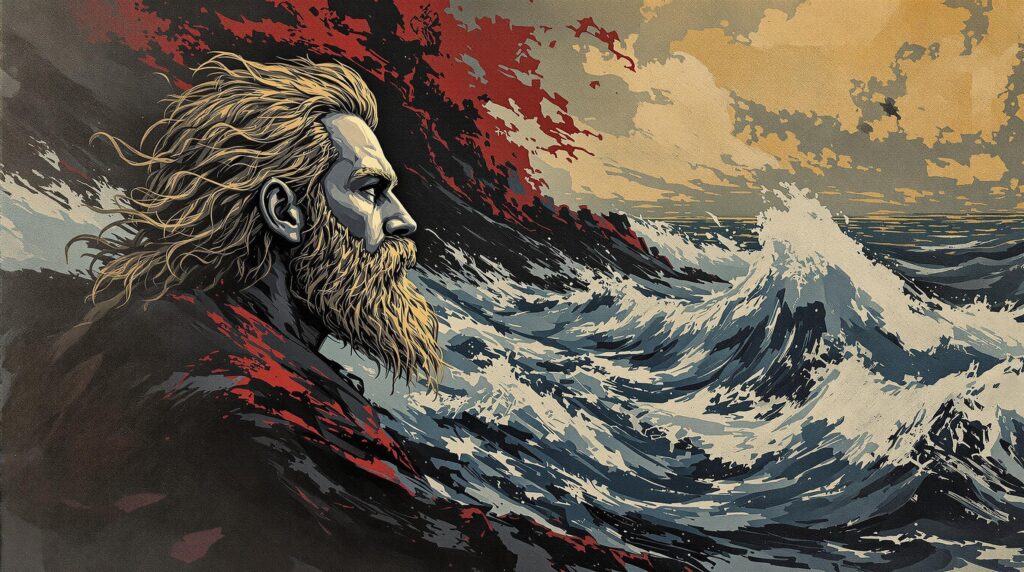In this chapter, the narrative unfolds as Zarathustra addresses his soul directly, recounting the journey of liberation and transformation it has undergone. His soul has been taught to embrace the present with the same reverence as the past, transcending temporal and spatial limitations. Zarathustra describes cleansing the soul of shame, narrow virtues, and the confines of obedience, urging it to stand naked before the sun.
Throughout the text, there is a recurring theme of emancipation from traditional moral constraints, such as sin and subservience. His soul has been granted the power to affirm and deny with the freedom of natural elements like the storm and the open sky, embracing both creation and the yet-to-be-created. Zarathustra has bestowed upon his soul new names and symbols—”the turning of need”, “fate”, “the umbilical cord of time”, and “azure bell”.

O my soul, I poured every sun upon you and every night and every silence and every longing – then you grew up for me like a vine.
He likens his soul to an abundant vine, heavy with grapes, which waits in a state of anticipation and modesty. There is a tension between the soul’s fullness and its yearning for release or expression. Zarathustra notes that the soul’s immense capacity for love encompasses both the future and the past, uniting them within itself.
A significant moment arises when he reflects on the nature of giving and receiving. He questions who owes gratitude—the giver or the receiver—suggesting that giving is a necessity, and receiving is an act of compassion.
Towards the conclusion, Zarathustra encourages his soul to transform its overwhelming emotion into song, as an alternative to weeping or lamentation, as this ultimately a form of accusing. The anticipation of a “golden miracle” descending upon tranquil seas evokes imagery of transcendence and the arrival of a redeemer figure—the vintner with a “diamond vintner’s knife”. This figure represents the one who will harvest his soul’s abundant offerings, facilitating its ultimate fulfillment.
